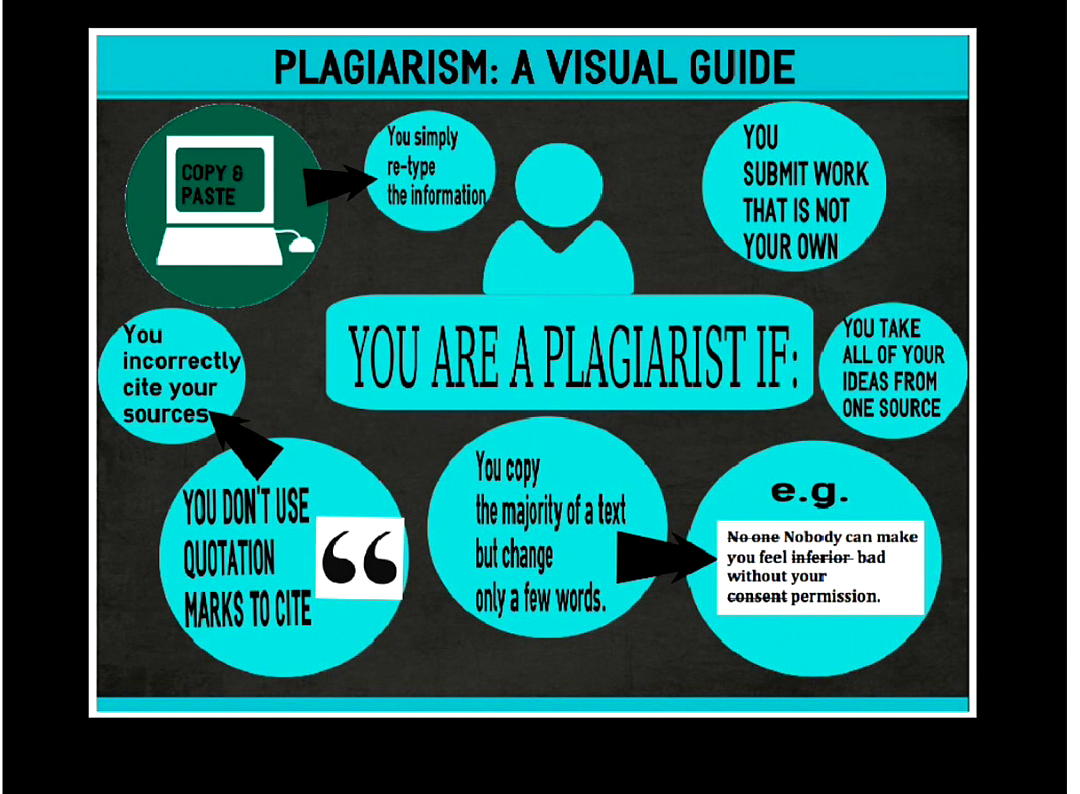Tutorial 7: Understanding plagiarism and how to avoid it
in this lesson you will consider:
- What Academic Misconduct and plagiarism are
- Why this is an important issue in your academic study
- How to maintain Academic Integrity and avoid plagiarism
- How to detect plagiarism
Be Aware of What Constitutes Academic Misconduct & Plagiarism
Be Aware of What Constitutes Academic Misconduct & Plagiarism
Plagiarism is using the words or ideas of others and presenting them as your own. Plagiarism is a type of intellectual theft. It can take many forms, from deliberate cheating to accidentally copying from a source without acknowledgement. Whenever you use the words or ideas of another person in your work, you must acknowledge where they came from.
One of the tensions of academic writing is that while you are expected to read, research and refer to experts and authorities, you are also expected to produce ‘original’ work. However, it is important to recognise that all scholarship involves understanding, researching, and expanding on the work of others to some degree. So, it is important to learn how to reference properly—that is, how to specify clearly and precisely what your debts are and how to acknowledge them. Then your own contribution can be clearly identified and appreciated.
Morling and the ACT policies
Check the Student Handbook and also the General Requirements for Assessments for further information about the policies of the College.

(image from https://s3.amazonaws.com/user-media.venngage.com/262119-2f9892e467c3a104e42efa29734e9641.png)
